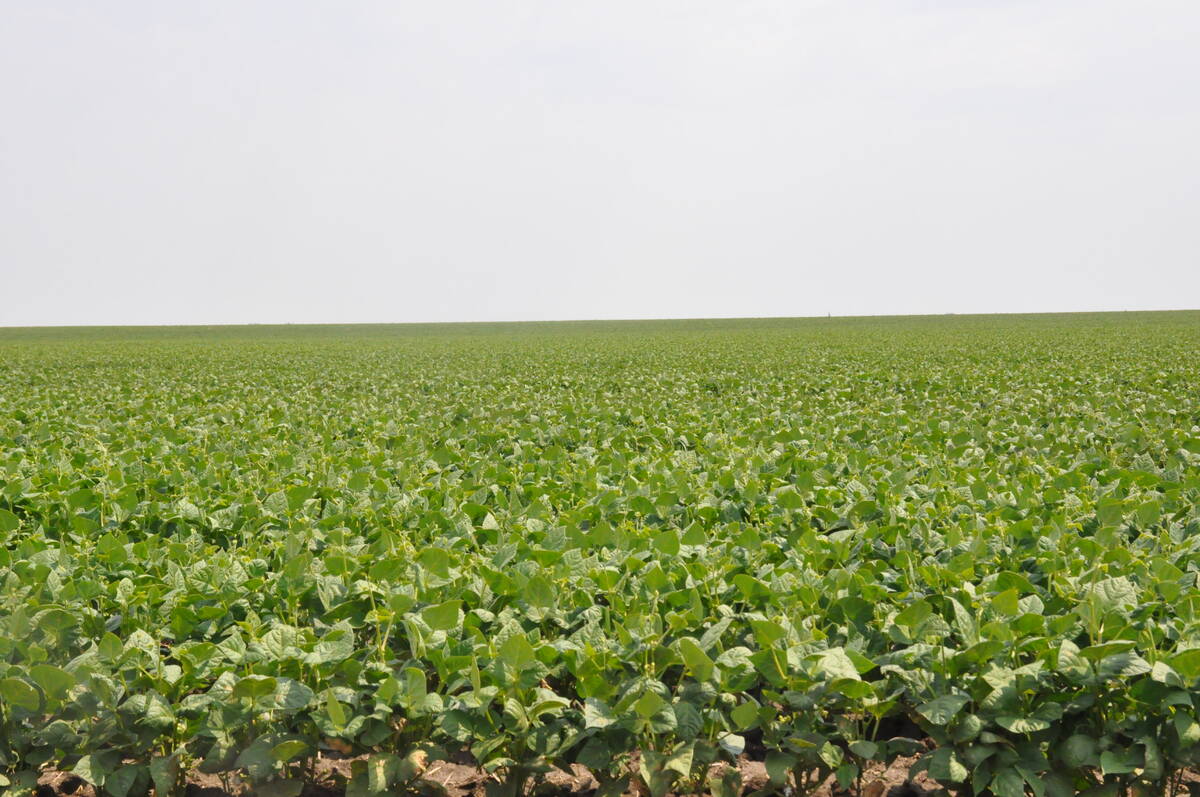Producers who grow crops for companies such as Merit Functional Foods must adhere to strict contract requirements
Farmers supplying the Merit Functional Foods pea and canola plant are seeing the reality of the high-value ingredients business.
It’s one in which the usual gulf between on-field production and end-use consumption is being bridged by tight specifications and close oversight.
“If we’re selling to a customer in Europe, what does it mean for a farmer in Souris, Man.?” said Dan Kraft, Merit’s vice-president of operations.
For a farmer who wants to sell to Merit, it means he must have a production contract with the company, grow only non-genetically modified peas and canola for the contract, grow crops on fields that are free from gluten and soy contamination, eschew in-crop glyphosate, submit to inspections by a contracted agronomist and have the crop picked up on the company’s schedule.
Read Also

Coloured bean production down, whites are up
Bean prices have been slumping and the outlook is for more of the same.
In exchange for that, farmers get a dedicated buyer, a premium price and a direct connection to the booming plant protein industry.
“We want to make sure our partners are financially rewarded for growing Clearfield canola and some of the extra farming practices,” said Kraft.
In recent months farmers have been offered $100 per tonne above futures prices. Kraft said there are about 75 farmers supplying peas and a few more than that supplying canola.
However, the company is planning to boost production as it gets up to full capacity with already-installed processing equipment, and hopes to double and quadruple maximum production eventually.
The non-GM and no-glyphosate requirements might bother farmers who rely upon those technologies, but Kraft said they come from the food companies who are paying for the crops.
“If we’re going to extract the most value from a tonne of peas or a tonne of canola … we’re going to have to be strict on some of these things because our customers, they’re willing to pay, but with these requirements,” said Kraft.
The specifications at Merit won’t be a shock to farmers who supply oats under some contracts for food companies, or for various other identity-preserved contracts for a number of crops. The Roquette pea protein plant in Portage la Prairie, Man., has similar requirements in its production contracts.
While today representing only a tiny proportion of the crops grown and marketed in Western Canada, these sorts of tightly defined production contracts are likely to become more common in coming years as food companies increasingly embrace product claims on their packaging.
Kraft said his company is finding more and more interest in its products, which are now being sold to buyers in a dozen countries as the plant protein trend develops and spreads.
Its canola protein products are unique and finding a friendly welcome from food companies, which are figuring out ways to use them.
“From ice cream to protein bars, it changes the quality of those products in a big, big way and customers are blown away by it,” said Kraft.
Tara Kozlowich, Merit’s vice-president of marketing, said plant protein ingredients are finding their way into many products.
“Now it’s touching every category,” said Kozlowich.
“That’s where I think our proteins have a good place because they can deliver on the functionality that’s required for new innovation and also deliver on nutrition with higher purity.”
Central Manitoba has become a hotbed for new plant protein processing investment, with both Roquette and Merit opening their plants within the last year.
However, plants are being built in other places as well.
Kraft said as the market continues to grow, companies like his will be looking to grow to meet its opportunities and to do so close to farm country.
“We should be a hot spot for plant protein in Canada. We grow it all here,” said Kraft.
“We just started. We’re 12 months in. We’re looking to expand. This is a market that we see a tonne of growth in, a tonne of opportunity.”
















